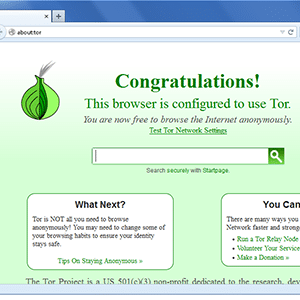More than ever, the online community is feeling the need to use tools to encrypt their content from end to end, to protect it from evil hands. After all, the Internet is full of risks and hazardous agents: hackers, Trojan horses, computer virus, spyware, adware, ransomware, and other types of malware, not to mention people trying to intercept your content and use it against you: governmental surveillance and intelligence agencies, copyright trolls, online advertising companies, and e-commerce shops, and so on.
Two of the most widely implemented tools to encrypt content and achieve satisfactory levels of online security, privacy, and anonymity are Tor and VPN. The former is a system acting like a web browser that hides the user’s shared content in such a way that it is entirely anonymous, thanks to a network of relays; while the latter comes in the form of apps that reroute the customer’s connection details through remote servers thanks to tunnelling protocols.
Both technologies achieve similar things: content and data protection and privacy. Of course, each one has its advantages and disadvantages when compared to the other one. In the Tor vs. VPN battle, which one comes out on top? Let’s find out.
 Tor: The Onion Router
Tor: The Onion Router
The Onion Router, better known as TOR because of its initials, is a pro-anonymity system that performs the functions of a web browser. However, it is not your average browser: it implements nodes and relays to connect the user to its desired server or page instead of offering a direct connection.
This decentralized system or network’s nodes can only recognize the IP addresses located in front or behind them, making it virtually impossible for any agent to track the complete path that the connection request covered. The nodes are random servers, located in different areas.
The TOR connection is encrypted from end to end, meaning that it is protected and routed through the nodes, or random servers. Before it reaches the final destination, which is the website that the user requests to connect to, the information is then decrypted.
VPN: Virtual Private Networks
Virtual Private Networks are all-purpose security and privacy apps that also encrypt the user’s content from end to end, just like TOR. However, the modus operandi is entirely different: VPN, which are apps that can be found online, reroute the customer’s connection details, such as its online identity (IP address,) shared content online, browsing history, and more, only to send that information to remote servers away from the Internet Service Provider (ISP.)
By using technologies called “protocols” – OpenVPN, L2TP/IPSec, SSTP, and IKEv2 are some examples – VPN apps build a virtual tunnel to protect the data from any external agent that may be potentially harmful to the user’s system.
When it comes to encryption, VPNs master the craft. It mixes the right protocol with authentication methods and data encryption to provide robust content protection from end to end.
Tor vs. VPN: how do they fare when compared to each other?
Since they both fulfil similar objectives implementing very different tools and approaches, let’s see where each one of these services take advantage over the other one:
- While VPNs are excellent tools to unblock content marked as geo-blocked (that is, located outside of the country’s area of service,) TOR can only access desired websites if the appointed exit node is in the preferred nation. Advantage: VPN.
- While VPN technology may slightly decrease the user’s Internet speed, TOR will be significantly slower since the connection request will be relayed through several nodes until reaching the final destination. Advantage: VPN.
- While VPN technology means you can browse the web anonymously, the brand you choose will still see every bit of data you share online, as well as your IP address. For complete anonymity, TOR is the right choice. Advantage: TOR.
- Both are easy to obtain, install, and use and they are available on most devices, platforms, and operating systems. Advantage: EVEN.
- VPN apps can be found for free and paid services. However, the former is not recommended because of its weak encryption and poor privacy practices. Paid companies charge between $3 and $15 for their monthly service, whereas TOR involves no costs whatsoever. Advantage: TOR.
- Both methods can be blocked under the right circumstances. Advantage: EVEN.
- Most VPN brands allow P2P activity, which means that you will be able to torrent. TOR is not suitable for P2P. Advantage: VPN.
- With the right VPN, you will be able to stream content online. Asking TOR to foster that activity, given its poor speeds, can be too much. Advantage: VPN.
IPBurger is a recommended VPN brand for torrenting, streaming, anonymous browsing, and data protection. It has a thorough no logging policy and it implements robust encryption, so there are no DNS, IP, or WebRTC leaks. This affordable VPN comes with several plans, starting from $5 per month, and it has both shared and dedicated IP addresses to fulfil every need.
In conclusion, both TOR and VPN are handy data encryption resources, with their own sets of pros and cons. Overall, we prefer the overall package that VPN apps can offer, but the truth is that combining both TOR vs. VPN features will provide the perfect atmosphere to foster online security.
 Tor: The Onion Router
Tor: The Onion Router

